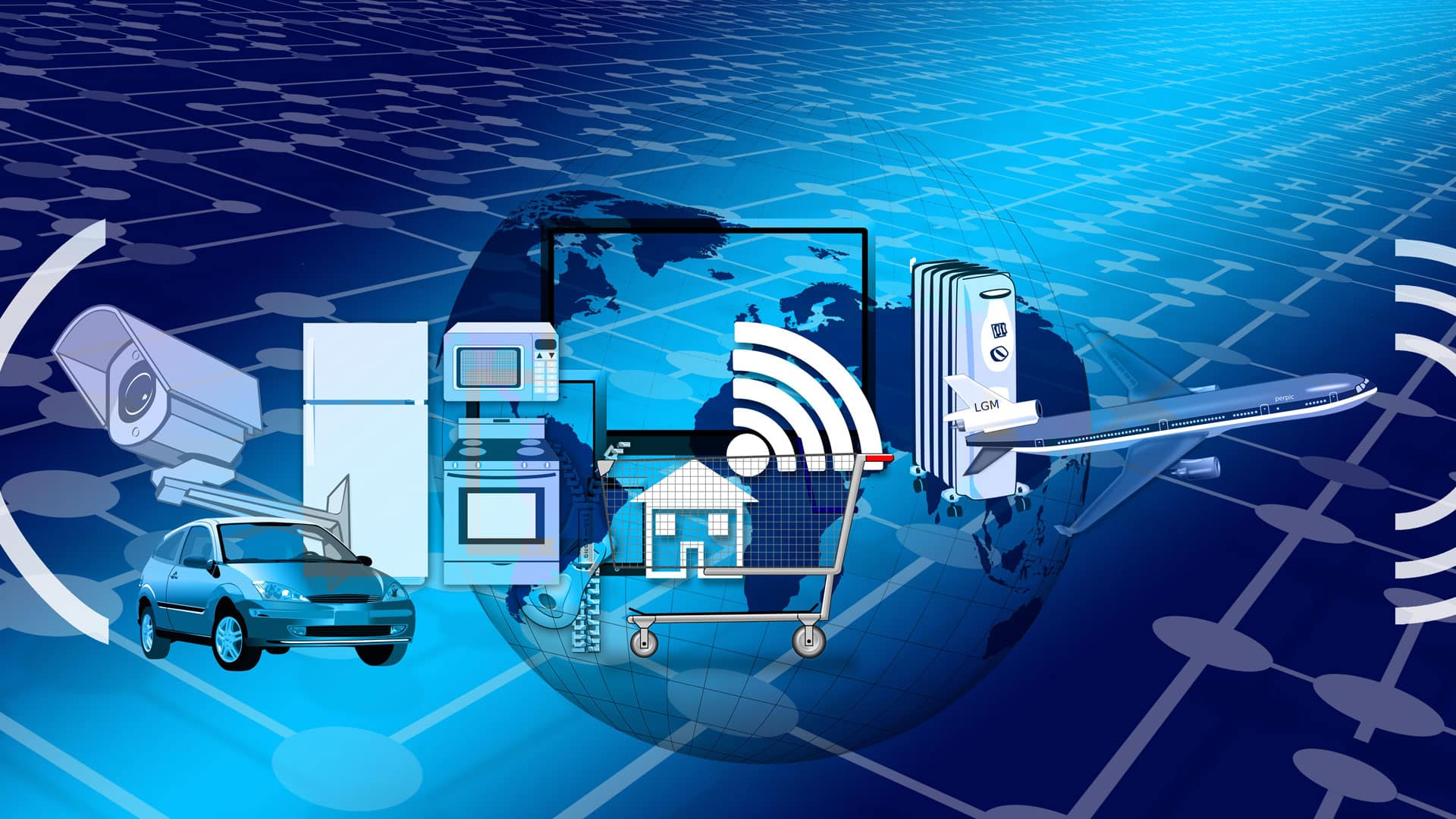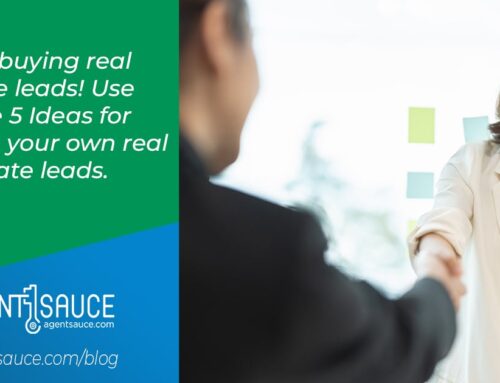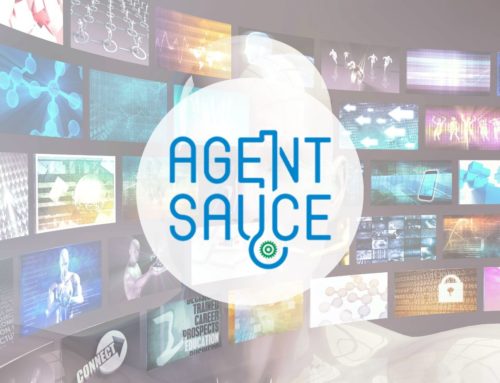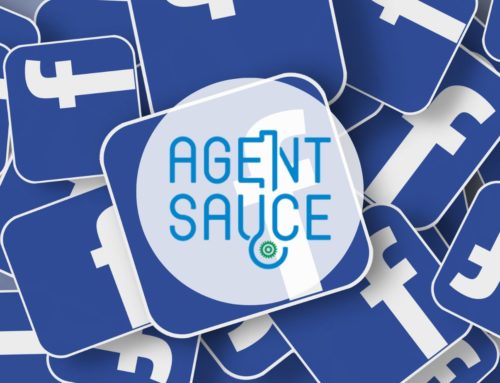Internet of Things
The Internet of Things is about to connect us in ways that we never imagined. We talk about how this is going to impact the real estate marketing world in this episode.
Internet of Things Take Aways
Internet of Things Podcast Transcript
Adam Small: Good afternoon, this is Adam Small here with the Agent Sauce Real Estate Marketing Podcast, and with me as always is Doug Karr.
Douglas Karr: Hello Sir.
Adam Small: How are you doing today, Doug?
Douglas Karr: I am fantastic.
Adam Small: Great. Great. So, listen. You just recently gave a presentation, a keynote speaking on Internet of Things for marketing purposes, right?
Douglas Karr: I did.
Adam Small: Very interesting topic and something that’s really coming up. So, I was thinking today we could talk about the ‘Internet of Things’ for marketing.
Douglas Karr: Yeah, absolutely. That’d be a good one.
Adam Small: Great. Well, let’s start off with explaining what Internet of Things is. I think that it’s a really nebulous term for a lot of people. So, let’s start there.
Douglas Karr: It is actually a nebulous term. It’s basically, it’s talking about everything that is connective and that means passively or actively connected to the Internet. And what I mean by that is, let’s say a car. A car, like Tesla is Internet of Things.
Douglas Karr: It’s basically that there’s a connection between the car and the Internet to download and upload information and everything else, but it’s not like a computer that you’re going to log into or whatever. It’s a device. And so these devices they act somewhat autonomously, like a car has to be able to dodge a deer if it jumps out in front of it, and it has to have connectivity so that it can download algorithms, and data, and everything else.
Adam Small: Software updates, that sort of thing. Right?
Douglas Karr: And so more often than not, what people are talking about Internet of Things is let’s say a watch. So, Apple watch or something like that.
Adam Small: Smartwatch.
Douglas Karr: Yeah, smartwatch, same thing, right? It’s not always connected to the Internet, but it’s collecting data and it’s doing things, and then when it connects to your mobile device, it uploads and stuff. And then voice search devices like Amazon, Alexa-
Adam Small: Google Home?
Douglas Karr: … Google Home and Apple, I-
Adam Small: iHome? What is it? I don’t know what it is.
Douglas Karr: No, I can’t remember.
Adam Small: It’s not iHome.
Douglas Karr: No, it’s not. I forgot. It’s expensive-
Adam Small: HomePod-
Douglas Karr: … it’s expensive.
Adam Small: It’s expensive. It’s Apple, it’s expensive.
Douglas Karr: Homepod, yeah. And so that’s what people tend to think, but the future is basically that even at my house, I now have my thermostat connected to the Internet. I have my lighting, I have my garage door opener connected to the Internet. Some people have their security systems, all of those devices are Internet of Things devices.
Adam Small: So, basically it’s just taking, modernizing if you will, what we have had for a long time and giving it an Internet enabled connection that then enables it to do more than it did for us. Like you said, turning the lights on automatically, or voice activating the lights or your thermostat is actually a really great example of that, because not only can you control it via the Internet, but the better ones that are like that actually learn your habits. They learn when to turn on the heat and the cool and stuff like that in order to help conserve energy, lower your costs.
Adam Small: So, that’s even a step further because chances are good, they’re not really doing all the algorithm and the data analyzing on the device, it’s probably uploading that- [crosstalk 00:03:37]
Douglas Karr: That’s exactly. It doesn’t have a ton of computer-
Adam Small: … then doing analysis.
Douglas Karr: … It doesn’t have a ton of computing power local. So what it does is it uploads that data and then can basically get instructions from the mothership if you will. But I love my, I’m going to tell you my thermostat, I love it because I password protected it so my daughter can’t crank up the heat in the winter or crank the AC-
Adam Small: The AC in the Summer? Yeah. Yeah. So just go on vacation and just leave her at one temp the whole time, right?
Douglas Karr: Exactly. But I will say, I mean I paid, I got a Honeywell one. I didn’t get the Nest, which is probably the most modern one. But the Honeywell one, and I think it was about $250, I installed it myself and I’ve already saved that within a few months. Maybe within four or five months I saved that money.
Adam Small: In energy costs?
Douglas Karr: Yeah, because after I went to bed I had it drop the temperature down and then before I would get home I would have it do it something and so I got it kinda modeled around my schedule and just by changing five degrees in each direction, I wasn’t just sitting there having the heat go on and off all day.
Adam Small: Very interesting. Okay. So how does that apply to marketing? What can you do with marketing and Internet of Things?
Douglas Karr: Well, a lot of the problem with marketing is customer loyalty and customer experience. And so it’s, how do you keep in touch with a customer, and how do you make a customer loyal, and then how do you make a customer an advocate? In other words, they start cheering for you out there.
Adam Small: Well, and they started endorsing you and pushing, they’re telling your friends, “Hey, you really got to buy this.”
Douglas Karr: Right, and the problem that we have with that, we all have with that, whether it’s a real estate agent or anybody, is that we have thousands of customers and we only have so much time in the day to actually interact with them. There’s an expectation from consumers that you’re just waiting for their phone call and you’re waiting to send them something.
Douglas Karr: And the truth is that we’re all trying to really balance our resources. So the promise of Internet of Things or the opportunity I would say with Internet of Things, is that you can have these devices that are giving you data that that data is coming automatically to you and you can act on it when it comes to you.
Douglas Karr: An example I think I gave you was, right now you have text messaging off of the signs but eventually, and this might even be within the next few years, these Internet of Things devices are so small, literally they’re tinier than a penny, and they can have a seven month battery in them where they can be solar powered or whatever. That instead of someone text messaging you, it’s literally when someone walks up to a house and people don’t realize that their phones are all near field communications enabled nowadays. That it’ll detect the phone, and you can have a message on it or it could open up a webpage or it could open up the mobile tour or whatever.
Douglas Karr: Then obviously, it can ask them a question if they’d like to communicate with the realtor, and maybe it calls the realtor or it sends them a message or whatever. So the deal here is it didn’t even take an interaction. It didn’t even take the person to make the step. It automatically detected that there was a phone nearby, connected that phone, asked permission, and then communicated.
Douglas Karr: So now if you’re a realtor, as people are walking in and out of the homes that you have for sale, you’re not having to prompt them or anything like that. You just sit there and wait and now all of a sudden it’s coming to you. So you can organize your time more effectively and everything else on when you’re having open houses, and etc.
Adam Small: So, the device that you’re talking about in particular, they are Internet of Things, but they’re also proximity base.
Douglas Karr: Well, yeah, that’s a really good point. Some of these devices connect straight to the Internet, like your Alexa. But some of these connect via your phone to the Internet. It’s like, I don’t know the technical term for it, but it’s basically piggybacking. Like my Apple watch does not connect directly to the Internet. I have a first generation-
Adam Small: Generation, that right?
Douglas Karr: … but it does connect to my mobile phone which connects to the Internet. And so what they’re doing right now with a lot of these devices is teaching them how to piggyback like that. So, you don’t actually physically have to have a network connection nearby. It can ask permission to use your phone and then send the message.
Adam Small: I see. Well, and that’s actually, permission thing was actually to where I was going to go next because especially with all this stuff going on with Facebook and recently the privacy issues and stuff like that. The way you described it at first was that, somebody wouldn’t really have a choice of whether or not they have got the message.
Douglas Karr: Right, they always have a choice.
Adam Small: Then the question then from a privacy and permission perspective, this is permission based. Say, get a choice to say, yes, I want to get this, you know?
Douglas Karr: Yeah. Consumers even now can turn off this kind of stuff. But the fascinating thing is like even with Google, if you turn off your location services, it still detects when there’s an NFC device nearby.
Adam Small: Well, location services in NFC aren’t necessarily the same thing.
Douglas Karr: Right, exactly. Yeah.
Adam Small: It’s just the NFC happens be proximity based because it is in fact near field communication as opposed to location.
Douglas Karr: But I mean you can turn off location services, you can turn off your cell phone-
Adam Small: Despite everything and you’re still going to have NFC [crosstalk 00:09:47]
Douglas Karr: … yeah, and it’s still going to detect internal and that’s part of the cost of having a cheaper phone. That’s how Apple and Google can sell things a lot less expensive, is they’re collecting data on you. The interesting thing with Internet of Things in the long run though there is that, when I’m talking about these devices, these are devices that you, like in this case a realtor can play somewhere.
Douglas Karr: So, now it’s not about someone trusting Google or trusting Facebook, it’s about them trusting you, which I think brings an awesome opportunity back to marketers and back to companies, and that’s that they no longer have to rely on buying-
Adam Small: They stop at third person middleman, that’s in on the data, that the consumers having to give their data to in order for it to get into the hands of the realtor or whomever.
Douglas Karr: And consumers, if there’s something of value, they’re going to do it, right? If I, walk up to a house and it’s locked up, and all of a sudden my phone beeps and it says, “Hey, would you like to do a mobile tour of the house?” That’s something of value. I might say yes, and it says, “Could I have your name and phone number?” I fill that in and I start watching the mobile tour. Well, I know that I gave that data. It wasn’t just stolen from my phone and in return I’m getting some … Consumers don’t mind trading for value. What they hate is abusing the data.
Adam Small: The data being abused is actual fact, and kind of off on a tangent here, but I read a story just yesterday about a woman who bought something at a store and she was asked if she wanted to give up her email address, get 5% off. So she went ahead and she gave up her email address and then the next like six or seven years in suit of her continuing to get emails from this company even though she … At first, they didn’t have an opt-out policy, and then afterwards the opt-out links didn’t work, and it reached a point she was even calling the company and telling them to please stop emailing her and they wouldn’t. They couldn’t figure it out [crosstalk 00:12:01]
Douglas Karr: And they just ruined the relationship.
Adam Small: That’s exactly what her point was. So, not really Internet of Things, but what you just said there triggered that because it’s really all about handling the relationship properly, not abusing that data when you get it, that sort of thing. Got any other examples of a way that Internet of Things could be used for marketing?
Douglas Karr: I mean, it’s one of those things that’s amazing honestly, but printed circuits are becoming a thing now and that’s that you can, instead of ordering circuit boards or ordering these devices, you’ll literally be able to buy a printer someday that will print these out. And so, one of the things that they can print out literally, and I’m not making this up, is they’re already testing printing displays.
Douglas Karr: So, what we take for granted, like a TV display right now, you’ll be able to eventually get a printer with LED, with flexible LEDS to print something. What that does, is now all of a sudden you’ve got a temporary display that you can put anywhere. And so now-
Adam Small: So you could then use that to send a marketing message, so you know-
Douglas Karr: There you go.
Adam Small: … to your example of virtual tours, but even beyond that, it could be displaying, sending your newsletter, sending your latest listings and all sorts of great information there.
Douglas Karr: An example might be, someone walks up to the door of the house or whatever, and now all of a sudden your realtor looks at them, enhances them, because there’s an Internet of Things camera and a Internet of Things display. They don’t have to worry about someone stealing an iPad or anything.
Adam Small: Right, because if they take that, you just go home, print another one.
Douglas Karr: Exactly. Yeah. And so I think we’re getting into the future of, 5/10 years from now, we don’t even realize [crosstalk 00:14:06]
Adam Small: All the stuff we’ve seen in the movies.
Douglas Karr: Exactly, exactly. And look, we throw our $1000 phones three years after we use them. These things are literally pennies like some of the chips that are out right now. One of them was a Wi-Fi and Bluetooth and I found it online. It was $2.75.
Adam Small: That’s amazing. It’s just amazing.
Douglas Karr: And so, like I showed you I think one day that they have NFC cards that are coming out now, and you can buy them now and they are-
Adam Small: Business cards.
Douglas Karr: … and they are a few dollars a card. Now, when someone takes their business card and puts it by their phone, now it’s going to pop up and say, “Do you want to open this link ?” And you can open up your homepage or open up a intro video or whatever.
Adam Small: And if done right, yeah, that could be an amazing marketing opportunity, ongoing because you could literally change that link to point to what you want it to on an ongoing basis.
Douglas Karr: Some of the other stuff is honestly, let’s say a real estate company really wants to maintain a good relationship with a client. You could have Internet of Things devices on their house. You could have things that detect when there’s a hail storm, and you could have things-
Adam Small: Gutter is overflowing, [inaudible 00:15:21] falling …
Douglas Karr: Gutters overflowing. And so, now all of a sudden you can basically have an ongoing relationship with your customer, years after you left them, and for pennies. Not huge dollars and so right now you think about that and you go like, “Oh my God, a system like that, you’re going to pay thousands of dollars for a plus, hundreds of dollars a month for monitoring anything else.
Douglas Karr: But we’re going to get to a point where some of that stuff is just going to be, “Hey, I sold you the house as a complement.” We’re not going to call it Internet of Things then I’m sure, but we’re going to put our monitor-
Adam Small: A home monitoring system in there.
Douglas Karr: Yeah, we’re going to put our monitoring package on there for you where we just let you know-
Adam Small: Our whole health system.
Douglas Karr: Yeah, yeah. And you as a consumer, what are you going to say? No, I don’t want to-
Adam Small: No, I don’t want that. No, no.
Douglas Karr: You’re going to go, “Yeah, that’s great.”
Adam Small: But on to your point there, piggybacks off the homeowners Wi-Fi, right? And if it’s done right and … we’re coming up with a great new business idea here, right? Done right, it’s got a little App on the phone or that can be installed where they get notifications, they open it up, and it’s branded for the agent or the agency or the brokerage. So, interesting. Very interesting.
Douglas Karr: And that, maybe you put an addition on the back of your home and you weren’t aware that the property prices went up $20/30000 in the last few years. Well, now the real estate agent can can detect that and send you something proactively and say, “Hey-”
Adam Small: Or competitive market analysis says, “Hey, your home’s now worth of $30000 more.” That sort of thing. Very interesting. So it’s cool.
Douglas Karr: To me that’s what’s interesting is collecting data, and then being proactive with that data, and then of course, the holy grail is being able to message back with these systems. But what you’re doing there now is, now it’s not up to Yelp, Facebook, Google to carry a relationship with your client. Now, your client is directly linked to you and you can control the quality of that relationship back and forth.
Douglas Karr: With real estate agents, I’m sure it’s huge. I’m guessing that with a real estate agent, if I bought a house 10 years ago, I probably don’t go back to the real estate agent that I had unless they’re keeping in touch me.
Adam Small: Unless they’re maintaining a relationship. A lot of real estate agents, they are… a lot of their business after a while once they start having some longevity, a lot of it is in fact either referral or repeat business. But to your point, it requires that maintenance of the relationship.
Douglas Karr: The touch? Yeah. And so things like Internet of Things are really going to be just an amazing opportunity. Some of the weird examples I gave, John McDonald, who’s a local Internet of Things expert, gave the example of, that your car can actually tell, even today, it’s just that privacy won’t let it. Your car can tell when you’re starting to weave in traffic, so if you’re tired for instance. If you enabled the devices and the alerts and everything else, you could actually have your car tell you, “Hey, there’s a Starbucks, two miles down the road. Do you want me to go ahead and order your Mocha Latte?” Whatever.
Adam Small: Your favorite caffeinated beverage.
Douglas Karr: Yeah, and of course, what do you do? Now, you wake up a little bit, you say, “Yeah, oh, that’s a good idea.”
Adam Small: Well, even the benefit of having it just alert you, sending off a little few things or whatever that gonna say, “Hey, you know, [inaudible 00:19:01]”
Douglas Karr: Right, and that’s your car. But what I’m going to is, no, no. What if Starbucks puts out a commuter mug, thus when you put it down in your car, it says, “Hey, I’d like to connect to your car. Is that okay?” You say, “Yes, you have permission,” and now your commuter mug tells you when-
Adam Small: “Hey, you’re passing Starbucks, why don’t you come and get a drink?” Yeah.
Douglas Karr: Exactly. That’s what I think is fabulous, is that the car company won’t basically own that relationship. It’s whatever device-
Adam Small: Starbucks will then own the relationship. Yeah, very interesting.
Douglas Karr: That’s what’s fascinating to me about this is. I really think it’s just going to explode. Now, the downside to it is that if you don’t keep up with these technologies, you could be in the real trouble.
Douglas Karr: So if a real estate agent doesn’t adopt Internet of Things in 10 years let’s say, they might be out because real estate agents that do adopt these technologies, and have these unbelievable offerings, are-
Adam Small: Well, that’s a lot of what it comes down to for a real estate agent when they’re in a listing meeting, buying or selling. They have to be able to show the prospect of customer that not only are they keeping up with technology, but that they’re goIng to use it to the best of their advantage. Either help the customer buy a place at the best possible price or sell it at the best possible price.
Douglas Karr: It’s that, you’re sitting next to your neighbor and your neighbor says, “Wait, your real estate agent doesn’t have a monitoring system for your house?”
Adam Small: It’s probably more on, “You didn’t get one of those? Why not?”
Douglas Karr: Yeah, exactly. And now you start to go, “Well wait a sec.”
Adam Small: Yeah, exactly. So yeah, yeah, absolutely. Well, hey, great. Any final thoughts on Internet of Things?
Douglas Karr: No, just that it’s here now. I mean, they’re doing fascinating things now and people that are really worried about the security in these things-
Adam Small: Privacy and security, right?
Douglas Karr: … I honestly wouldn’t be because Internet of Things basically has a security layer built into every aspect that there always has to be a handshake, always has to be permission to kinda go between, and so years ago when Dell is… I have to be transparent there. A client of mine, Dell, used to have devices that were connected to the Internet and everything else. Dell didn’t take care of security at that time. That was up to you and your software developer and everything else.
Douglas Karr: Well, now Dell makes these Edge devices, they call them and ‘Edge’ is a word that you guys are going to hear a lot. Edge just means it’s on the outer edge of-
Adam Small: The perimeter.
Douglas Karr: … Yeah, the cloud. But these Edge devices have built in security layers. So, Dell is managing the security of the device, not leaving it up to a developer who might make a mistake or an operator who might turn something on when they shouldn’t. They’re going to control that security. So, that’s the cool thing about the future of this too, is that what people-
Adam Small: Well, you’re starting to see that in technology in general. You’re starting to bake security right into whatever it is you’re developing, whether it’s hardware or software.
Douglas Karr: We don’t install updates on Alexa. We don’t manage secure … well, a little bit we give it permissions but for the most part it’s updating itself and it’s limiting how people can interact with itself.
Adam Small: So, the manufacturers or builders, they’re all trying to bake that in right up front instead of, 20 years ago when we were first getting into computers and-
Douglas Karr: No security,
Adam Small: … there was no security. It was an afterthought at best and it’s just become so necessary now. And I say 20 years ago, I know computers have been around a lot longer than that. I’m just trying not to overly date myself.
Adam Small: All right, great, so final thought. It’s here to stay and it’s going to really revolutionize the way we do a lot of things and hopefully make lives a lot easier.
Douglas Karr: Absolutely.
Adam Small: All right, great. Well, thanks for joining us today, Doug. I appreciate it. If you guys have any more questions, want to learn more about Internet of Things or real estate marketing, feel free to check us out at agentsauce.com. Thanks. Have a great day.







